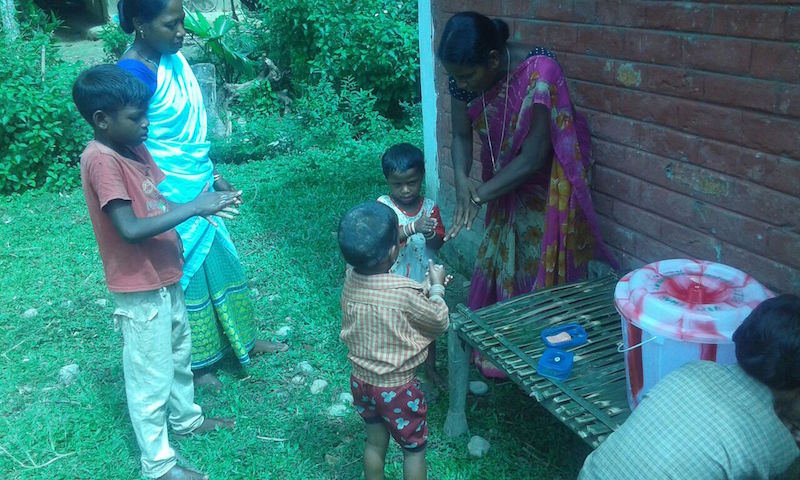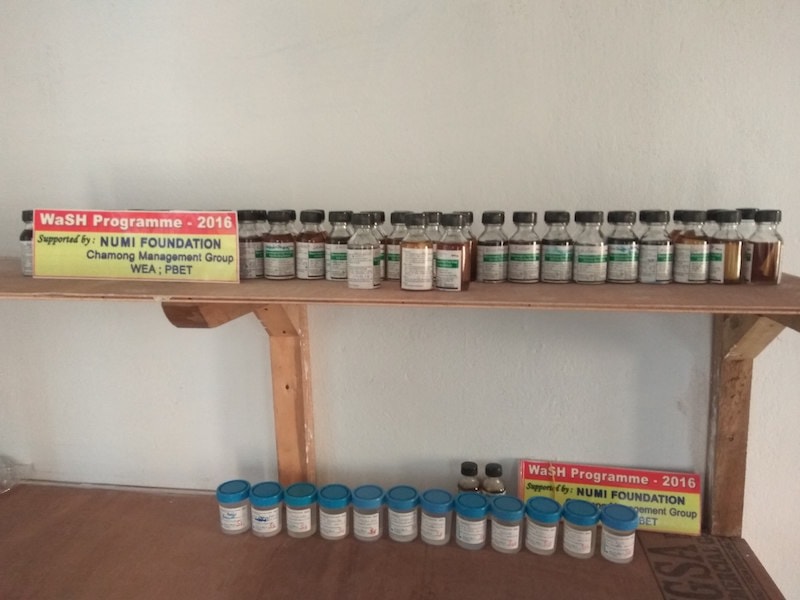Taking steps toward clean water in an Assam tea garden
Assam, India is famous for its high quality black tea and home to Numi Tea’s largest supplier. Yet Assam is one of India’s poorest states, in terms of access to safe drinking water. Fewer than 1 in 15 households have access to tap water. Many women and children walk up to 3 hours per day to collect and carry water for their families, facing security risks, poor health, and barriers to productive livelihoods.
In 2016 WEA and the Numi Foundation teamed up with local NGOs and the Chamong Tea Company to launch the Together for H20PE Project in a commitment to bring clean water to all 6,500 residents of the Tonganagoan tea community, and to ensure residents have the knowledge and resources they need for a healthy water system for generations to come.
Together for H20PE’s first step in the spring of 2016 was to conduct a preliminary WASH assessment of Tonganagoan’s water system. “WASH” (shorthand for water, sanitation and hygiene) is a multi-faceted approach to assessing and developing healthy water systems. A WASH program looks at resident’s access to clean water as well as the community’s sanitation and hygiene practices. A good example of a WASH approach is recognizing that improperly stored water, even clean water, can cause contamination and make someone sick. Each aspect of a healthy water system enforces the others.

Building a diverse and comprehensive outreach plan is essential to widespread adoption of healthy WASH practices.
The project’s implementing partner Purva Bharati Educational Trust (PBET) brought in Aranyak, a local conservation NGO, to help assess Tonganagoan’s existing water infrastructure and understand resident’s current water practices. Their comprehensive assessment guided the team in planning structural improvements while PBET designed an outreach approach to ensure the widespread adoption of healthy WASH practices.
From summer to fall of 2016, the team conducted a pilot program in one of the 12 villages that make up the Toganagoan Tea Garden. Over the course of two Training of Trainers workshops, volunteers learned the ins and outs of the technical WASH principles and built up their communication skills. These new trainers will be leaders for healthy water practices in their community. To support their outreach efforts, the team specifically learned some songs to remember WASH practices and developed a street play for public WASH demonstrations. (Below is a snippet of a song about hygiene!)

In the Training of Trainers workshops, volunteers learned how to conduct water tests and interpret the results from samples.

Volunteers learned songs and put together skits to engage their community in WASH techniques. Listen to one of the songs about hygiene that the new trainers teach to children.
The pilot program answered many key questions about outreach and education in the community. Extensive home visits and demonstrations helped the team pinpoint which water treatment practices are most readily adopted by residents and how to help volunteers be effective stewards of WASH practices.
Using everything they learned from the pilot program, we’re busy collaboratively designing a Master Plan to engage the other eleven villages in WASH practices. We’re so excited to see Together for H20PE take shape and make an impact in these communities.

[…] water to the workers. NGOs such as WaterAid India have also undertaken projects to improve access to safe drinking water and sanitation facilities in tea plantations of […]
[…] water to the workers. NGOs such as WaterAid India have also undertaken projects to improve access to safe drinking water and sanitation facilities in tea plantations of […]